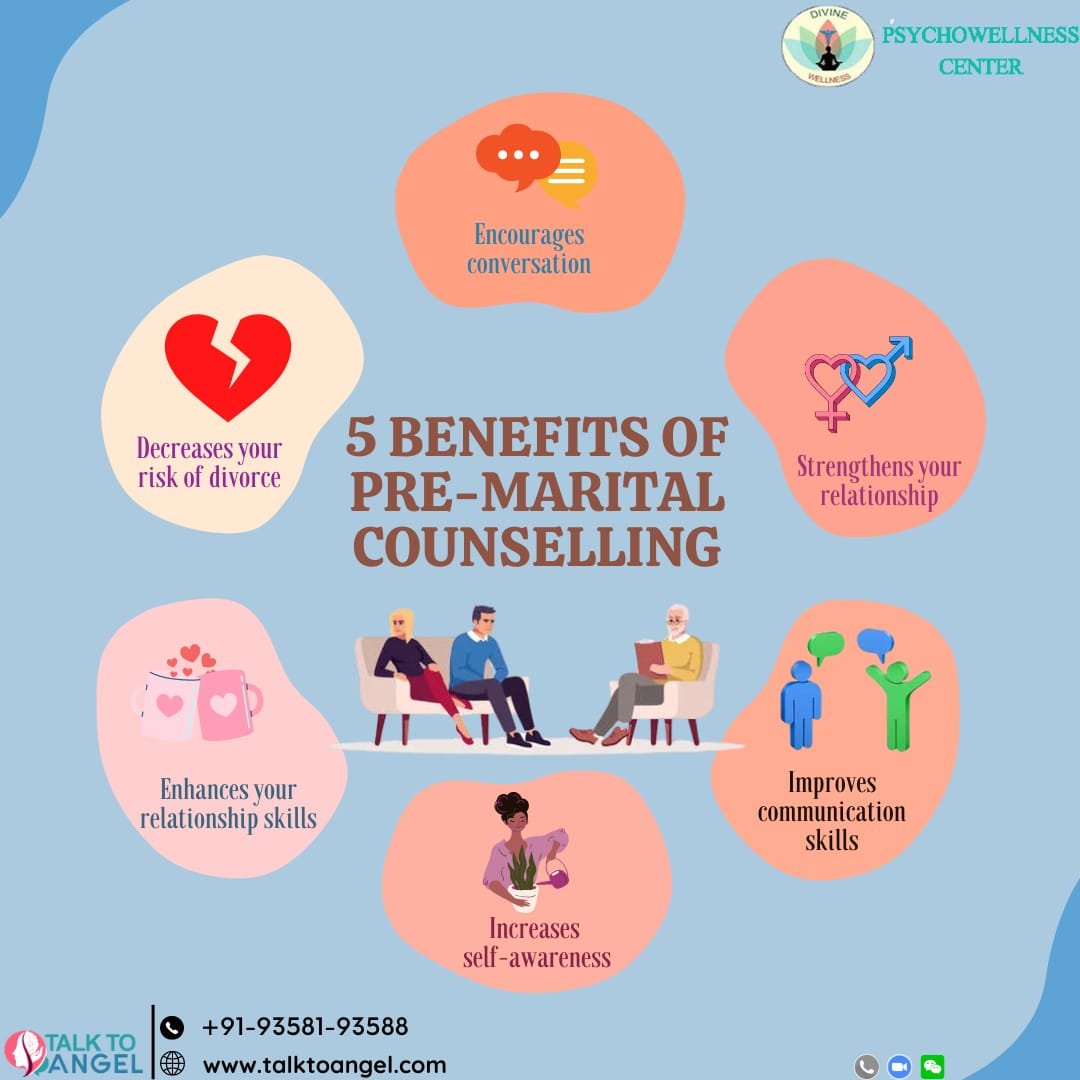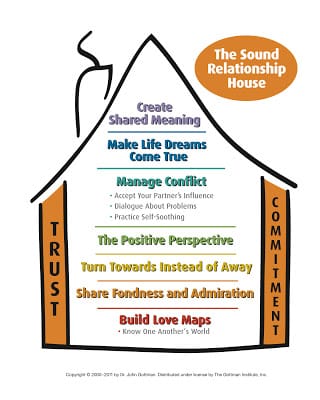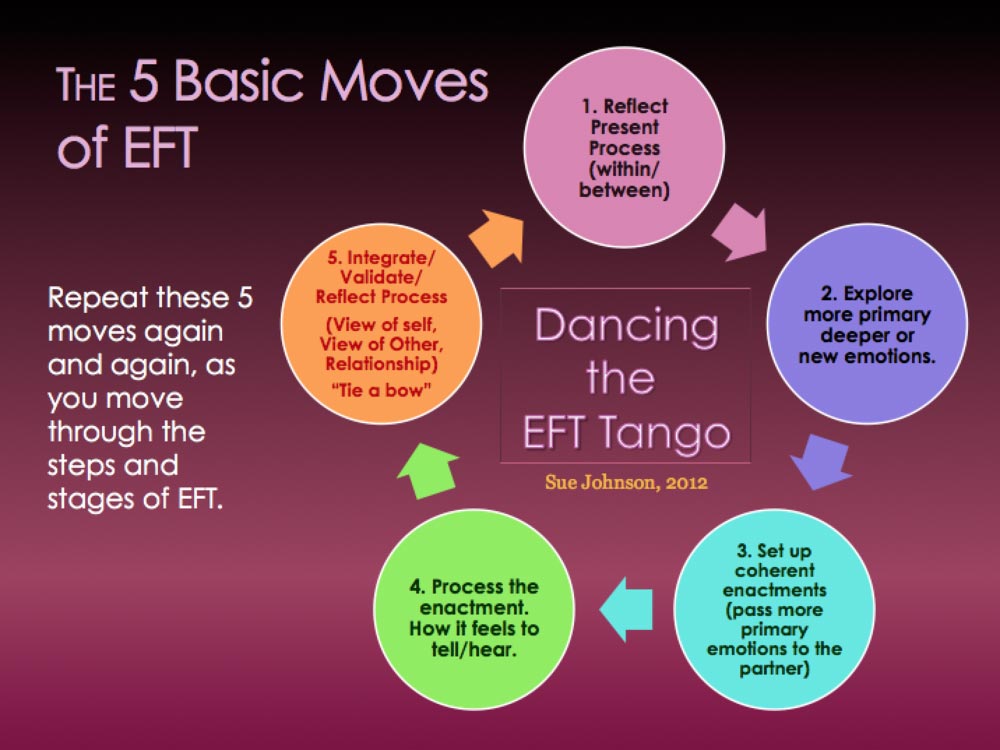Introduction
Marriage is one of the most significant life decisions, and its success often depends on thorough preparation before entering into the commitment. Premarital counseling provides couples with the necessary tools to navigate marital challenges, fostering stronger and healthier relationships.
Read More- Counseling for Neurodevelopmental Disorders
Nature of Premarital Counseling
Premarital counseling is a structured process designed to help couples prepare for marriage by addressing critical issues such as communication, financial management, conflict resolution, and expectations regarding roles and responsibilities. According to Gladding (2018), premarital counseling helps couples understand each other’s values, beliefs, and expectations while providing them with essential relationship skills. The counseling process aims to increase marital satisfaction and reduce the risk of divorce by identifying potential conflicts and equipping couples with effective coping strategies.
Gleso (2021) emphasizes that premarital counseling serves as a proactive measure rather than a remedial one. It encourages couples to explore compatibility, personal growth, and relational dynamics before making a lifelong commitment. Furthermore, research suggests that couples who participate in premarital counseling report higher levels of marital satisfaction and lower divorce rates compared to those who do not (Stanley, Amato, Johnson, & Markman, 2006).
Objectives of Premarital Counseling
- Enhancing Communication Skills: Effective communication is essential for a healthy marriage. Counseling helps couples develop active listening skills and constructive dialogue techniques (Gladding, 2018).
- Identifying Potential Conflicts: Counselors guide couples in discussing key issues such as finances, in-laws, parenting styles, and religious beliefs.
- Building Conflict Resolution Strategies: Couples learn problem-solving techniques to manage disagreements without harming their relationship (Gleso, 2021).
- Establishing Realistic Expectations: Counseling encourages couples to openly discuss their expectations regarding intimacy, career goals, and family life.

Benefits of Premarital Counseling
Important Factors in Selecting a Mate
Choosing a life partner is a crucial decision that influences marital satisfaction and longevity. Research has identified several factors that contribute to successful mate selection:
1. Shared Values and Beliefs
A strong foundation in shared values and beliefs contributes to relationship stability. Differences in core values such as religion, family expectations, and long-term goals can lead to conflicts (Stanley et al., 2006). Couples with aligned values tend to experience greater satisfaction in their marriage.
2. Communication Compatibility
Effective communication is a critical predictor of marital success. Partners who can express their needs, concerns, and emotions openly and respectfully are more likely to sustain a fulfilling relationship (Gladding, 2018).
3. Emotional Maturity and Stability
Emotional intelligence plays a vital role in relationship satisfaction. Individuals with high emotional intelligence exhibit empathy, self-awareness, and the ability to regulate emotions, which fosters a healthy marital environment (Gleso, 2021).
4. Financial Compatibility
Disagreements over financial matters are one of the leading causes of marital discord. Research indicates that couples with similar financial habits and attitudes toward money management experience fewer conflicts and higher levels of marital satisfaction (Parsons, 2019).
5. Family Background and Upbringing
Family dynamics significantly impact an individual’s perception of marriage. Understanding each other’s family backgrounds can help couples anticipate potential challenges and develop strategies to address them effectively (Stanley et al., 2006).
6. Conflict Resolution Styles
How partners handle disagreements determines the longevity of their relationship. Couples who adopt constructive conflict resolution strategies, such as compromise and active listening, have higher chances of maintaining a stable marriage (Gladding, 2018).
Counseling Methods in Premarital Counseling
Different therapeutic approaches are employed in premarital counseling, depending on the needs of the couple. Some of the most effective methods include:
1. Gottman Method
Developed by John Gottman, this approach is based on extensive research into marital stability. The Gottman Method involves assessing the strengths and weaknesses of a relationship and teaching couples practical skills to improve communication, intimacy, and conflict resolution (Gottman & Silver, 2015). Key elements include-
- The Love Map: Understanding each partner’s emotional world.
- Building a Culture of Appreciation: Expressing gratitude and affection.
- Managing Conflict Constructively: Developing strategies to handle disagreements effectively.

Sound Relationship House
2. Emotionally Focused Therapy (EFT)
EFT focuses on strengthening emotional bonds between partners. It helps couples recognize and change negative interaction patterns that hinder emotional connection (Johnson, 2008). This approach is particularly beneficial for couples struggling with emotional distance or attachment insecurities.

Emotion-Focused Therapy
3. Prepare/Enrich Program
The Prepare/Enrich program is a widely used premarital assessment tool that evaluates relationship dynamics, strengths, and potential areas of conflict. The program includes:
- Personality and compatibility assessments.
- Communication and conflict resolution training.
- Discussions on financial management, intimacy, and spirituality (Olson & Olson, 2000).
4. Solution-Focused Brief Therapy (SFBT)
SFBT is a goal-oriented counseling approach that helps couples focus on their strengths and develop practical solutions for marital challenges. It emphasizes:
- Identifying what works well in the relationship.
- Setting realistic and achievable relationship goals.
- Encouraging positive behavioral changes (de Shazer, 1985).
Principles of Effective Premarital Counseling
Effective premarital counseling is guided by fundamental principles that enhance its success. These principles include-
- Open and Honest Communication- Counseling encourages couples to be transparent about their expectations, fears, and concerns. Honest conversations help in identifying potential issues early on (Gladding, 2018).
- Individual and Couple Growth- Personal development is crucial for relationship satisfaction. Premarital counseling fosters self-awareness and personal growth, which contribute to a healthy partnership (Gleso, 2021).
- Focus on Strengths and Weaknesses- A balanced approach that acknowledges both strengths and areas for improvement helps couples build a solid foundation for marriage (Stanley et al., 2006).
- Skill-Based Training- Practical skill-building exercises, such as role-playing and conflict resolution simulations, prepare couples for real-life challenges in marriage (Parsons, 2019).
- Cultural Sensitivity- Counseling should consider cultural backgrounds, traditions, and societal expectations that influence marriage dynamics (Johnson, 2008).
Conclusion
Premarital counseling plays a crucial role in equipping couples with the knowledge and skills necessary for a successful marriage. By addressing key relationship aspects such as communication, conflict resolution, and shared values, couples can strengthen their bond and enhance their marital satisfaction. Various counseling methods, including the Gottman Method, EFT, and the Prepare/Enrich program, provide structured approaches to relationship preparation. Ultimately, premarital counseling serves as a valuable investment in a couple’s future, increasing their chances of a long and fulfilling marriage.
References
de Shazer, S. (1985). Keys to Solution in Brief Therapy. Norton.
Gladding, S. T. (2018). Family Therapy: History, Theory, and Practice. Pearson.
Gleso, R. (2021). Preparing for Marriage: A Comprehensive Guide to Premarital Counseling. McGraw-Hill.
Gottman, J., & Silver, N. (2015). The Seven Principles for Making Marriage Work. Harmony Books.
Johnson, S. M. (2008). Hold Me Tight: Seven Conversations for a Lifetime of Love. Little, Brown.
Olson, D. H., & Olson, A. K. (2000). Prepare/Enrich Counselor’s Manual. Life Innovations.
Parsons, T. (2019). Marriage and Financial Compatibility: The Key to a Stable Relationship. Routledge.
Stanley, S. M., Amato, P. R., Johnson, C. A., & Markman, H. J. (2006). Premarital education, marital quality, and divorce rates. Journal of Family Psychology, 20(1), 117-126.
Subscribe to Careershodh
Get the latest updates and insights.
Join 16,417 other subscribers!
Niwlikar, B. A. (2025, March 15). Premarital Counseling and 4 Important Methods Used in It. Careershodh. https://www.careershodh.com/premarital-counseling/
